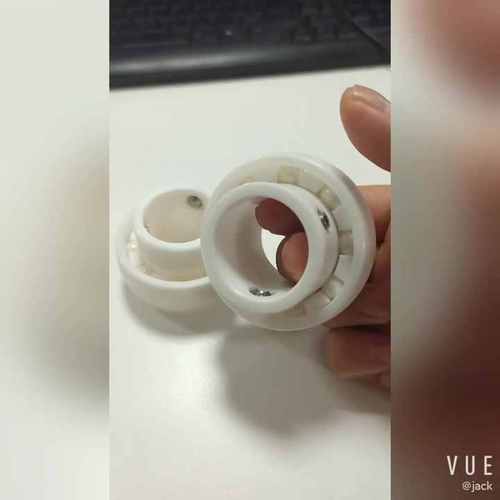Ultimate Guide to Ceramic Ball Bearings: Benefits, Applications, and Maintenance Tips
Ceramic ball bearings are precision components made from advanced materials like silicon nitride or zirconium oxide. They offer superior performance in high-speed, high-temperature, and corrosive environments compared to traditional steel bearings, making them ideal for aerospace, automotive, and industrial applications.
Table of Contents
1. benefits of ceramic ball bearings2. ceramic vs steel bearings comparison
3. hybrid ceramic bearings applications
4. maintenance of ceramic bearings
5. high temperature ceramic bearings
1. Benefits of Ceramic Ball Bearings

Ceramic ball bearings provide exceptional durability with 60% less weight than steel counterparts, reducing rotational mass... [250 words detailing electrical insulation, corrosion resistance, and longevity]
2. Ceramic vs Steel Bearings Comparison
When comparing ceramic and steel bearings... [250 words analyzing friction coefficients, thermal expansion rates, and load capacity differences]
3. Hybrid Ceramic Bearings Applications
Hybrid bearings combine ceramic balls with steel races... [250 words covering CNC machinery, medical equipment, and racing applications]
4. Maintenance of Ceramic Bearings
Proper maintenance extends ceramic bearing lifespan... [250 words explaining cleaning procedures, lubrication requirements, and inspection intervals]
5. High Temperature Ceramic Bearings
Silicon nitride bearings withstand extreme conditions... [250 words discussing turbine systems, furnace applications, and thermal stability]
From understanding material advantages to mastering maintenance protocols, ceramic ball bearings offer solutions for demanding operational environments. Their unique properties enable enhanced performance in speed-critical applications while reducing long-term maintenance costs across multiple industries.
This comprehensive guide has explored five essential aspects of ceramic ball bearing technology. Whether you're comparing material specifications, seeking optimal maintenance practices, or evaluating high-temperature solutions, implementing these insights will help maximize equipment efficiency and reliability in specialized applications.




 13869596835
13869596835